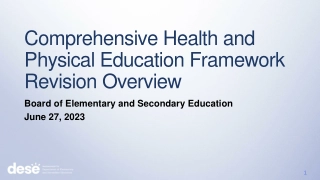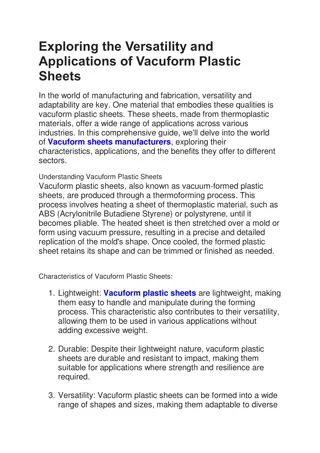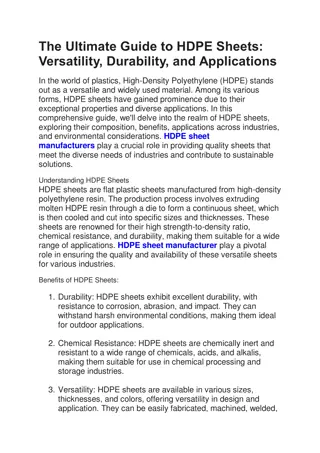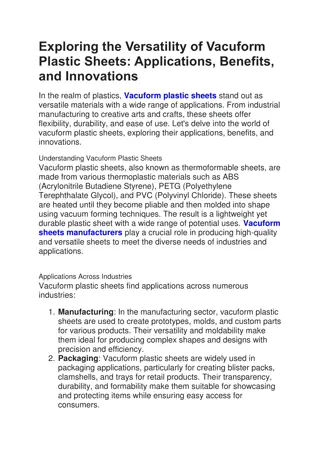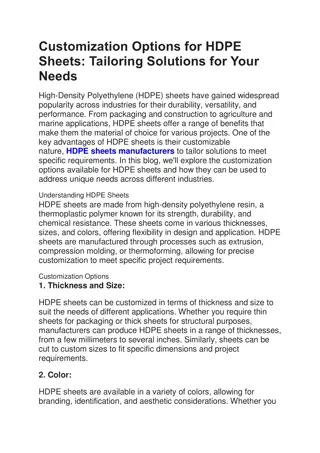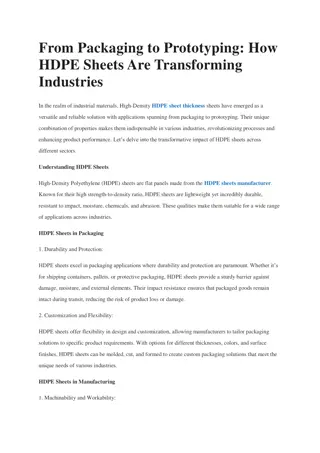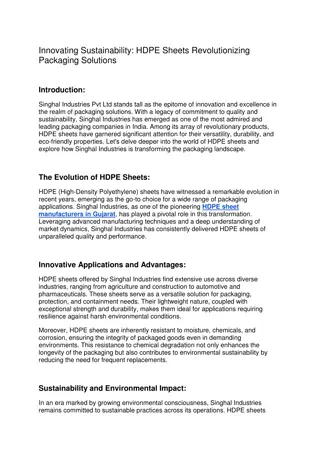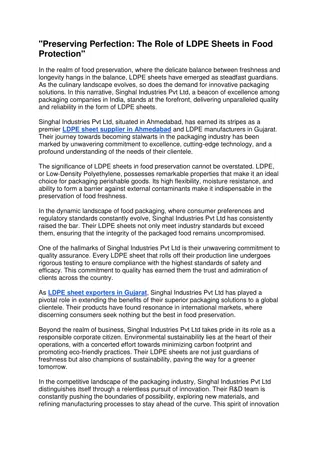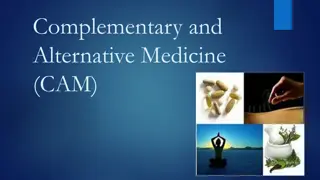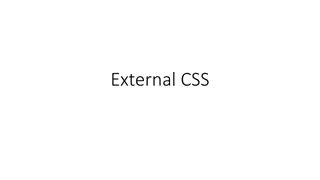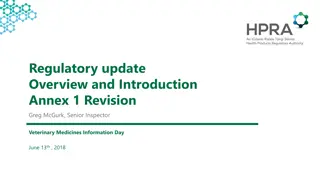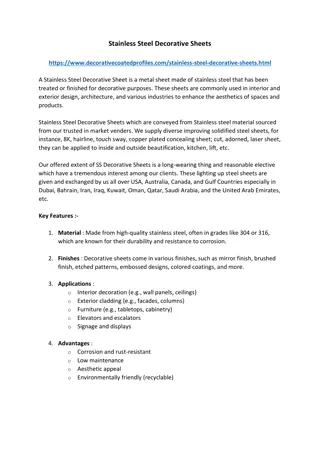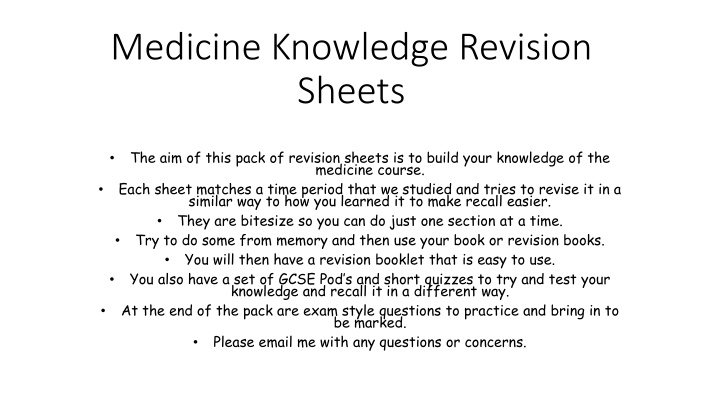
Medicine Knowledge Revision Sheets
Enhance your understanding of the medicine course with these revision sheets covering various topics from historic medicine to modern healthcare advancements. Utilize the bite-sized sections for effective recall and testing your knowledge. Access GCSE Pods and quizzes to reinforce your learning.
Download Presentation

Please find below an Image/Link to download the presentation.
The content on the website is provided AS IS for your information and personal use only. It may not be sold, licensed, or shared on other websites without obtaining consent from the author. If you encounter any issues during the download, it is possible that the publisher has removed the file from their server.
You are allowed to download the files provided on this website for personal or commercial use, subject to the condition that they are used lawfully. All files are the property of their respective owners.
The content on the website is provided AS IS for your information and personal use only. It may not be sold, licensed, or shared on other websites without obtaining consent from the author.
E N D
Presentation Transcript
Medicine Knowledge Revision Sheets The aim of this pack of revision sheets is to build your knowledge of the medicine course. Each sheet matches a time period that we studied and tries to revise it in a similar way to how you learned it to make recall easier. They are bitesize so you can do just one section at a time. Try to do some from memory and then use your book or revision books. You will then have a revision booklet that is easy to use. You also have a set of GCSE Pod s and short quizzes to try and test your knowledge and recall it in a different way. At the end of the pack are exam style questions to practice and bring in to be marked. Please email me with any questions or concerns.
Student Self Assessment Medicine Topic 5: Historic Environment World War One Home Front Topic Topic R Y G Revised Topic Area 1 Medieval Medicine The work of Galen and Hippocrates on the theory of the four humours Medieval Ideas about cause of disease including the continued influence of Galen and Hippocrates, Miasma and God. Apothecary, Barber Surgeon and Physician Treatment of Diseases God, Purifying Air, Blooding and traditional remedies R Y G Revis ed Battles of Ypres, Somme, Arras and Cambrai Trench System and its Impact on Medical Treatment Importance of Terrain and Communications on Medical Treatments Medical Conditions on the Western Front Wounds, Gas, Explosives, Head Injuries Work of the RAMC and FANY Stages of Casualty Withdrawal Development of Medicine Thomas Splint, Blood Banks, X-Ray Units, Treating Infection Knowledge of Local Sources and Their Strengths and Weaknesses e.g. Personal accounts, Photographs, Records, Statistics The role of the church and medieval hospitals in caring for the sick Black Death Topic Area 2 Renaissance Medicine New Scientific Approach Thomas Sydenham, Royal Society and Printing Continuity in Cause and Treatments Four Humours, God, Common Sense The work and importance of Andreas Vesalius The work and importance of William Harvey Dealing with the Great Plague Change and Continuity Black Death Topic Area 3 18thand 19thcentury medicine Edward Jenner and Vaccination The work and importance of Louis Pasteur and Germ Theory The work and importance of Robert Koch James Simpson and the discovery of anaesthetics; importance and impact Joseph Lister and the use of antiseptics; importance and impact The work of Florence Nightingale and Development of Hospitals Fighting Cholera John Snow and the Broad Street Pump Public Health Act 1848 and 1875 Topic Area 4 - How has health care in England improved from the 20thcentury to today? Learning Checklist Begin your revision by ranking yourself on this check list. R = Red = Very uncertain Once you have completed this pack redo this exercise. Fleming, Florey and Chain; mass production of penicillin building on the work of magic bullets. The work of Wilhelm R ntgen and X-rays Christian Barnard and heart transplants; modern transplant surgery Ultra-sound, MRI, PET scans and Blood Tests The discovery of DNA and genetics; continued development and application as therapy s. Modern drugs and treatment (treatment for cancers and for heart disease; the HIV/AIDS threat; the use of keyhole and micro surgery) The establishment of the National Health Service Today's concerns regarding health care including Lung Cancer diagnosis and treatments.
Idea on the cause of disease Description Is this a change or not in ideas. Bad Air/Miasma Why was everyone still reading Galen after 1500 years? Supernatural God/Devil Four Humours Apothecary Wise Women Treatment Description How Effective Bleeding and Purging Medieval Care givers. What were they like and what did they do? Natural remedies God and Prayer http://static.memrise.com/uploads/items/Black_Rat.jpg Black Death What people thought caused it? Barber Surgeon Physician How did they treat it? Describe a medieval hospital What can the Black Death tell us about Medieval Medicine? Does it show change or continuity in attitude to disease? Medieval Medicine
3 Basic Facts What did they Discover? What Factors Helped them Discover it? Did they really change medicine? Vesalius Sydenham Harvey Born 1578 Studied at Cambridge and Padua Became doctor to Charles II. Blood pumps blood around the body. Blood not made in the liver. Veins have valves Individual Genius Scientific experimentation to prove his ideas. War and religion Ideas looked down on because they criticised Galen and his research confiscated. Bleeding still common up to the 19th century and even used on Charles II when dying. Top 3 Changes Medieval to Renaissance: 1. Dissection was now Change from Black Death Continuity with Black Death Now believed in person to person. Still thought it was caused by God and shut pubs and gaming houses. 2. Apothecary Wise Women 3. Renaissance Care givers and what they did Top 2 Continuities Medieval to Renaissance: 1. Four Humours still .. Quacks Physicians 2. 3.
Koch Pasteur Sets up Boards of Health in areas of high death rates and disease to improve sanitary conditions. But not compulsory or enforced. 1848 First Public Health Act 2 Background Facts What he discovered and when? 1854 Work of John Snow on Cholera What factors led to the discovery? (Rivalry, chance, war, economy, genius, technology) 1875 Second Public Health Act Why it was useful? (What was the impact of the discovery) Edward Jenner What did he discover: Pain: James Simpson What did she do? What prevented progress: Nightingale What was her impact? Infection: Joseph Lister applied the ideas of Pasteur to create antiseptic surgery by spraying carbolic acid on the patient and surgery. Later aseptic surgery introduced. Solutions to the Problems of surgery Impact of his discovery:
1928 Penicillin is first tested on a human being, in Oxford. PC Albert Alexander who died. Modern Treatment and Diagnosis 3 Facts including discovery, use, what was used before, how does it work etc. Impact on Medicine 1929 Chain and Florey begin research in Oxford on penicillin after reading an article by Fleming. 1939 Fleming discovers mould has killed bacteria in a culture dish after leaving it out over a weekend. X-Rays 1940 Enough penicillin is available to treat the Allied forces in the D-day invasion of Europe saving 300,000 men. 1941 America joins the Second World War. Ultrasound Fleming publishes findings about penicillin declaring it will never work in humans. December 1941 The year after the US join WW2II, US and British governments share the costs of mass-producing penicillin (American government gives $80 million!) Experiment with mice, by Florey and Chain, proves penicillin kills bacteria in living creatures. 1942 CT and MRI Scan 1944 Transplants Why was DNA s structure discovered in 1953? How has and will DNA s discovery change medicine? Anti- Smoking Campaigns Discovery and Impact of DNA Robotics surgery and prosthetics DNA Therapy Importance of the NHS 1. 2. 3.
Battle Area: Ypres (1915) Key Features The Germans held higher ground and could easily attack with guns and shells. Trenches became easily flooded and very muddy. First use of poison gas at Ypres. What was the impact/difficulties for medicine during this battle: (Hints mud, gas, frequent attack) Battle Area: Somme Key Features What was the impact/difficulties for medicine during this battle: Battle Area: Arras Key Features Battle Area: Cambrai (1917) Key Features First large scale attack by tanks (over 450) Failed because of lack of support from infantry. What was the impact/difficulties for medicine during this battle: New injuries from tanks such as burns and counter attacks by Germans that led to many casualties. What was the impact/difficulties for medicine during this battle: Problems with this type of terrain: 1. Difficult to transport injured soldiers. 2. 3. Historic Environment WW1 Field Ambulance Dressing Station What were they? Regimental Aid Post What were they? Stretches Bearers What were they? Gas Attacks Poison gas was a new weapon in WW1 that caused horrible injuries and death such as drowning in your own lungs. At first doctors did not know how to treat it and the effects of gas often lasted the whole of men s lives. Shrapnel and Bullets These were the most common wounds men received in battle and were doubly dangerous as they could become infected. They often resulted in amputation as this was the only way to treat in the time they had. Infection The most common infection was... How might battle effect this stage of the route? How might battle effect this stage of the route? How might battle effect this stage of the route? Casualty Clearing Station (CCS) What were they? Base Hospital What were they? How might battle effect this stage of the route? How might battle effect this stage of the route? Trench Foot Trench Fever This was caused by Shell Shock / NYD.N There were also other unseen wounds such as... Plastic surgery Blood transfusions and storage Advances of WW1. What improved? Thomas Splint Treating infection
Topic to Be Revised. Use the GCSE Pods and the quiz as Bitesize revision to test how much you have learned from the revision sheets. Once you have done write down areas you feel less confident with to look at again and anything you are stuck on to ask me. GCSE POD Homework: Black Death, Plague and Renaissance Hospitals https://members.gcsepod.com/pupils/assignments/assignment/72121 GCSE POD Homework: Renaissance Individuals (Harvey, Vesalius, Pare, Paracelsus) https://members.gcsepod.com/pupils/assignments/assignment/71428 Score What do I still need to revise? What questions do I need to ask Mrs Webb GCSE POD Homework: Renaissance - Change or Continuity? https://members.gcsepod.com/pupils/assignments/assignment/71432 GCSE POD Homework: Public Health (Problems, Snow and Chadwick) https://members.gcsepod.com/pupils/assignments/assignment/71433 GCSE POD Homework: Fighting Disease - Vaccination and Jenner Discovery of Bacteria and Early Work (Pasteur, Koch and Magic Bullets) https://members.gcsepod.com/pupils/assignments/assignment/71455 GCSE POD Homework: Surgery (Simpson and Lister and Nightingale) https://members.gcsepod.com/pupils/assignments/assignment/71448 GCSE POD Homework: Modern Surgery X-Rays, Transplants, Plastic Surgery and Modern Surgery https://members.gcsepod.com/pupils/assignments/assignment/71452 GCSE POD Homework: Impact of Wars and NHS https://members.gcsepod.com/pupils/assignments/assignment/71454 GCSE POD Homework: Modern Fight Against Disease - Penicillin, New Treatments and Approaches and DNA https://members.gcsepod.com/pupils/assignments/assignment/72122
Student Self Assessment Medicine Topic 5: Historic Environment World War One Home Front Topic Topic R Y G Revised Topic Area 1 Medieval Medicine The work of Galen and Hippocrates on the theory of the four humours Medieval Ideas about cause of disease including the continued influence of Galen and Hippocrates, Miasma and God. Apothecary, Barber Surgeon and Physician Treatment of Diseases God, Purifying Air, Blooding and traditional remedies R Y G Revis ed Battles of Ypres, Somme, Arras and Cambrai Trench System and its Impact on Medical Treatment Importance of Terrain and Communications on Medical Treatments Medical Conditions on the Western Front Wounds, Gas, Explosives, Head Injuries Work of the RAMC and FANY Stages of Casualty Withdrawal Development of Medicine Thomas Splint, Blood Banks, X-Ray Units, Treating Infection Knowledge of Local Sources and Their Strengths and Weaknesses e.g. Personal accounts, Photographs, Records, Statistics The role of the church and medieval hospitals in caring for the sick Black Death Topic Area 2 Renaissance Medicine New Scientific Approach Thomas Sydenham, Royal Society and Printing Continuity in Cause and Treatments Four Humours, God, Common Sense The work and importance of Andreas Vesalius The work and importance of William Harvey Dealing with the Great Plague Change and Continuity Black Death Topic Area 3 18th and 19th century medicine Edward Jenner and Vaccination The work and importance of Louis Pasteur and Germ Theory The work and importance of Robert Koch James Simpson and the discovery of anaesthetics; importance and impact Joseph Lister and the use of antiseptics; importance and impact The work of Florence Nightingale and Development of Hospitals Fighting Cholera John Snow and the Broad Street Pump Public Health Act 1848 and 1875 Topic Area 4 - How has health care in England improved from the 20th century to today? Learning Checklist Begin your revision by ranking yourself on this check list. R = Red = Very uncertain Once you have completed this pack redo this exercise. Fleming, Florey and Chain; mass production of penicillin building on the work of magic bullets. The work of Wilhelm R ntgen and X-rays Christian Barnard and heart transplants; modern transplant surgery Ultra-sound, MRI, PET scans and Blood Tests The discovery of DNA and genetics; continued development and application as therapy s. Modern drugs and treatment (treatment for cancers and for heart disease; the HIV/AIDS threat; the use of keyhole and micro surgery) The establishment of the National Health Service Today's concerns regarding health care including Lung Cancer diagnosis and treatments.
Section A Historic Environment QUESTION 1 QUESTION 1 [4 marks] Describe TWO features of: Weapons on the Western Front Support trenches on the Western Front Gas attacks on the Western Front Evacuations on the Western Front Surgery on the Western Front Aseptic surgery on the Western Front The quarries at Arras. The use of X-Rays on the Western Front. Field Hospitals on the Western Front Nursing on the Western Front Trench Foot, Trench Fever or Shell Shock Injuries on the Western Front Wound treatment Blood Transfusions during the First World War (June 2018)
QUESTION 2a QUESTION 2a [8 marks] How useful are Sources A and B for an enquiry into: The problems that faced those helping the wounded on the Western Front? The problems faced by hospitals in treating wounds on the Western Front? The treatment of battle injuries by medical staff on the Western Front? (June 2018) The problems faced by surgeons on the Western Front? The treatment of shrapnel wounds on the Western Front? The effectiveness of surgery on the Western Front? The speed of treatment on the Western Front? The problems involved in performing operations on the Western Front? The development of blood transfusions on the Western Front? The development of new techniques on the Western Front? The development of anaesthetics on the Western Front?
QUESTION 2b QUESTION 2b [4 marks] How could you follow up on Source B to find out more about: The problems that faced those helping the wounded on the Western Front? The problems face by hospitals in treating wounds on the Western Front? The treatment of battle injuries by medical staff on the Western Front? (June 2018) The problems faced by surgeons on the Western Front? The problems involved in performing operations on the Western Front? The effectiveness of surgery on the Western Front? The development of blood transfusions on the Western Front? The development of new techniques on the Western Front? The development of anaesthetics on the Western Front?
Section B Section B Medicine in Britain c.1250 Medicine in Britain c.1250 Present QUESTION 3 [4 marks] QUESTION 3 [4 marks] Present Explain ONE reason why understanding of illnesses were different/similar between 13th and 14th centuries 14th and 15th centuries 15th and 16th centuries ANY combinations of 13th to 21st centuries Explain ONE way that treatment/methods used/understanding of _________________ was different/similar between: (As above) This will use a SPECIFIC factor or disease. The Black Death Diagnosis Surgery Pain relief Disease/illness/infection Hospital care (2018)
QUESTION 4 QUESTION 4 [12 marks] Explain why: There was continuity/limited change in the understanding of the spread of illness and disease in the period c.1250 -1500. There were some changes in the understanding of the spread of illness and disease in the period c.1500-1700. There were changes in the understanding of the spread of illness and disease in the period c.1700-1900. There were changes in the understanding of the spread of illness and disease in the period c.1900-the present. There was continuity/change in the prevention and treatment of illness and disease in the period c.1250 -1500. There was continuity/change in the prevention and treatment of illness and disease in the period c.1500-1700. There was continuity/change in the prevention and treatment of illness and disease in the period c.1700-1900. There was continuity/change in the prevention and treatment of illness and disease in the period c.1900-the present. There was progress in the prevention of illness in the years c.1700- the present. (June 2018) There was rapid change in the treatment of illness in Britain during the 20th Century. The government increased its role in preventing disease and illness in the period c.1700-1900. There was so much opposition to Edward Jenner s vaccination against smallpox. The role of the Church in medicine decreased in importance in the years 1250-1700.
QUESTION 5 and 6 QUESTION 5 and 6 [16 marks + 4 SPaG] Quotation How far do you agree? Prevention and treatments for disease and illness in Medieval England were based on religious idea The Church was the most important reason for the lack of change in medical understanding in the period 1250-1500. The reliance on the Four Humours was the main reason that medical understanding changed little between 1250 and 1500. Herbal remedies were the main reason for the continuity of cures in the medieval period. Individuals/Technology/Government had the most significant impact on medical training in the period 1500-1700 or 1700-1900 or 1900-Present. Individuals/Technology/Government had the most significant impact on prevention and treatment of illness and disease in the period 1500-1700 or 1700-1900 or 1900-Present. There was complete change in ideas about the causes of illness and disease in the period c.1700-1900. There was limited change in ideas about the causes of illness and disease in the period c.1250 -1500. There was limited progress in understanding the causes of disease in the years c.1250-1700. (June 2018) The main reason that penicillin was developed in the early 20thcentury was because of the work of individuals. Edwin Chadwick s Report was the main reason why public health in towns improved during the nineteenth century. The Great Stink of 1858 was the main reason for the improvements in urban public health in the 19thcentury. Advances in technology have been the main reason for improvements of health care in the 20thcentury. The introduction of the NHS after WWII has had the biggest impact on people s health in the 20thCentury. Changes in lifestyle have had the biggest impact on health improvements in the 20thcentury.
QUESTION 5 and 6 QUESTION 5 and 6 [16 marks + 4 SPaG] Quotation How far do you agree? There was little progress in medicine in Britain during the Renaissance period. John Snow s work on cholera was a turning point in the prevention of infectious diseases c.1700- 1900. Government action is the most important reason why there were improvements in the care and treatment in hospitals during the nineteenth and twentieth centuries. Approaches to treatment and prevention of disease changed little between 1750 and 1900. The period c1800 present has been important mainly for finding preventions to disease. Ideas about the causes of disease changed significantly in the period c.1000-1900. Advances in surgery made in the years c.1700-1900 were more significant than advances in surgery made in the period c.1900-the present. (June 2018) Jenner s vaccination against smallpox was a major breakthrough in the prevention of disease in Britain during the period c.1700-1900. With this last question, Jenner s vaccinationcould be replaced with any key medical development such as Public Health, NHS, Cancer treatment, transplants, Harvey, Vesalius, Pasteur, Florence Nightingale etc. The period of study could also change.

